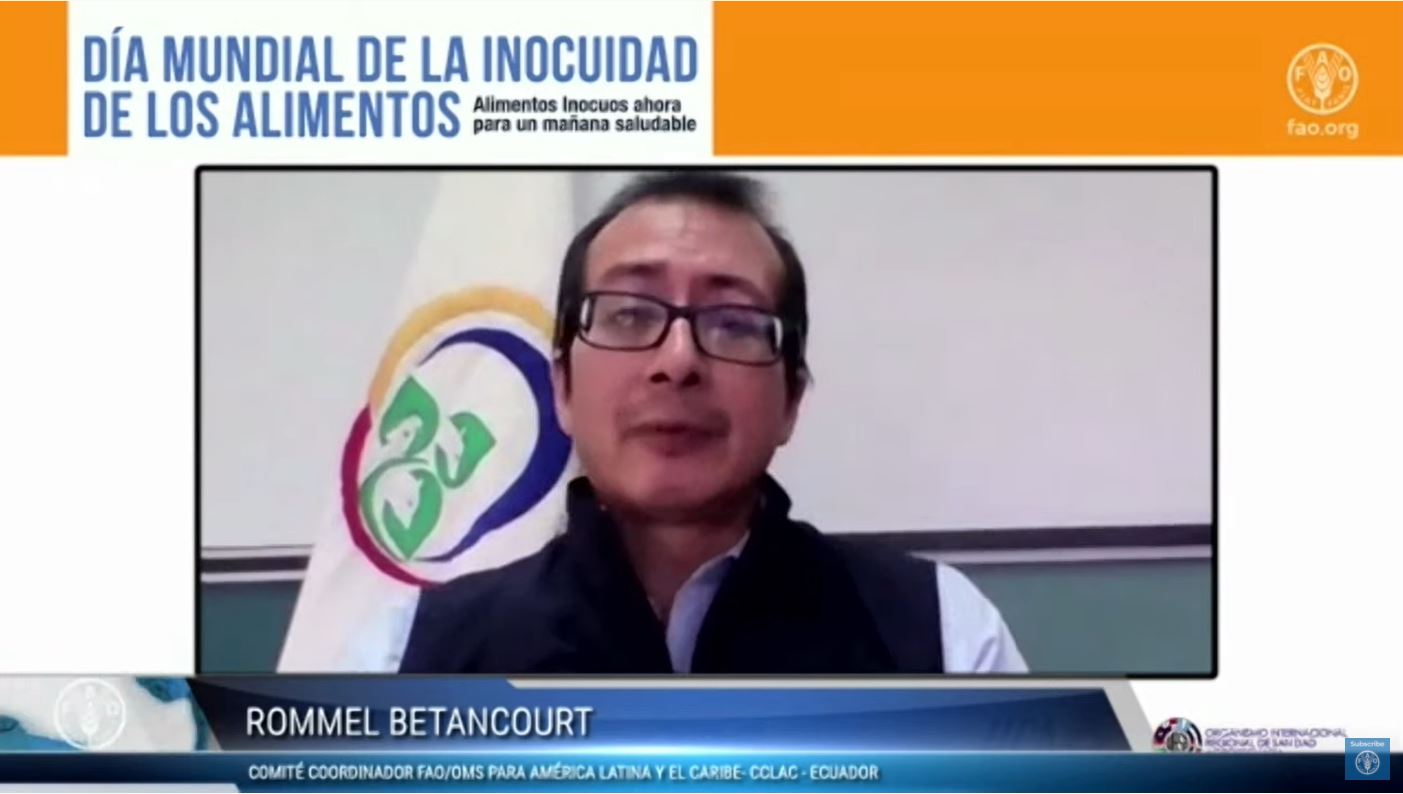Regional 2-day webinar for Latin America and the Caribbean hears how “feeding the planet is an opportunity for the whole region”
To open the week leading up to World Food Safety Day, the Food and Agriculture Organization of the United Nations (FAO), the Pan American Health Organization (PAHO), the Inter-American Institute for Cooperation on Agriculture (IICA), the International Regional Organisation for Animal and Plant Health (OIRSA) and the FAO/WHO Coordinating Committee for Latin America and the Caribbean (CCLAC) organized a two-day webinar to discuss the impact of food contaminants, traceability systems and best agricultural practices on food safety.
Attendance figures were high for this regional event, with 3440 people attending from Latin America, and 396 from the Caribbean. The event was opened by Rommel Betancourt, Regional Coordinator of CCLAC, who highlighted the importance of World Food Safety Day for the entire region and recalled Costa Rica’s role in proposing and promoting the international observance at the United Nations General Assembly and the Codex Alimentarius Commission. Betancourt stressed that “food safety is everyone’s business”, and that "there is no food security without food safety”.

"There is not food security, without food safety"
Raul Peralta, Regional Director of Food Safety at OIRSA, gave a presentation on good agricultural practices, stressing that the Covid-19 pandemic has highlighted the importance of adopting “adequate hygienic measures throughout the supply chain to ensure safe food for everyone". Following on from this, Marcos Medina, International Expert at the ProCadenas Project, underlined how Latin America is a land of “opportunities and natural resources”, defining it as "the cornucopia of the world" and recalling that “today, feeding the planet is an opportunity for the whole region, but it must also be a duty especially in this historical period".
Lorena Delgado, Coordinator of Chile’s local Codex Committee for Contaminants in Food (CCCF), explained the mechanisms behind the food control systems in Chile, illustrating the national legislation on food safety, and recalling the importance of Codex standards in keeping food safe. At the end of the first day, Assad Heneidi Zeckua, a veterinarian and expert in zootechnical matters from Mexico, analysed the risks related to aflatoxins in foods, sharing recent studies on their impacts on human health and the measures currently in place to reduce related risks.
The second day of discussion focused on traceability systems within the framework of food safety. The thread that connected the panellists’ interventions was how modern technology is crucial to monitoring food, from the field to the table. The importance of food labelling in informing all actors in the food chain was also highlighted, and the panellists concluded the webinar confirming that everyone involved at the various stages has the responsibility to keep food safe.
Panel contributors were: Katherine Oliveira, Director of the Good Food Institute Brazil; Desmond Ali, Executive Director of the Caribbean Poultry Association; Bertha Muñoz, Veterinary Doctor; Lisa Indar Director of the Surveillance, Disease Prevention and Control Division at CARPHA; Daniel Montes de Oca, Food Safety Expert; Angel Ortiz, Safety Director at Matadero Buevo Camic S.A.
The recorded event is now available on YouTube:
Day 1 https://youtu.be/FM7zNyao8jo
Day 2 https://youtu.be/cs_ADYsCvas






